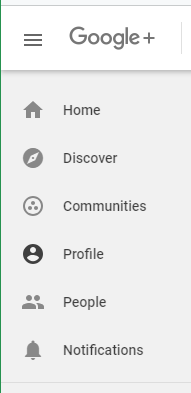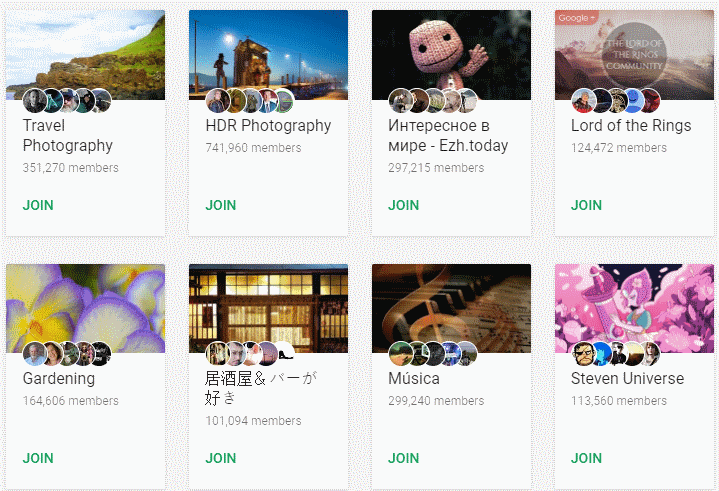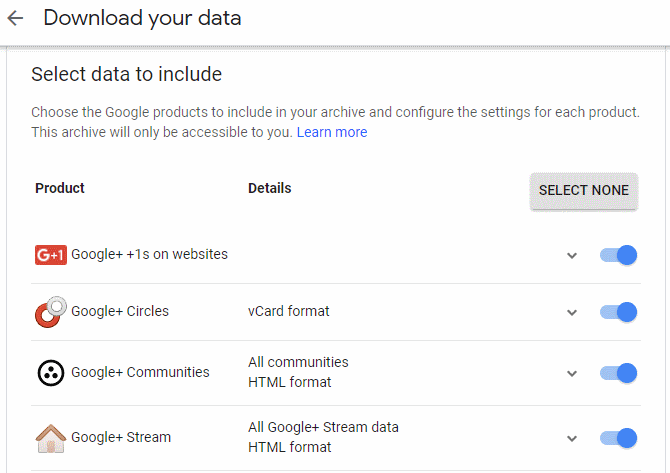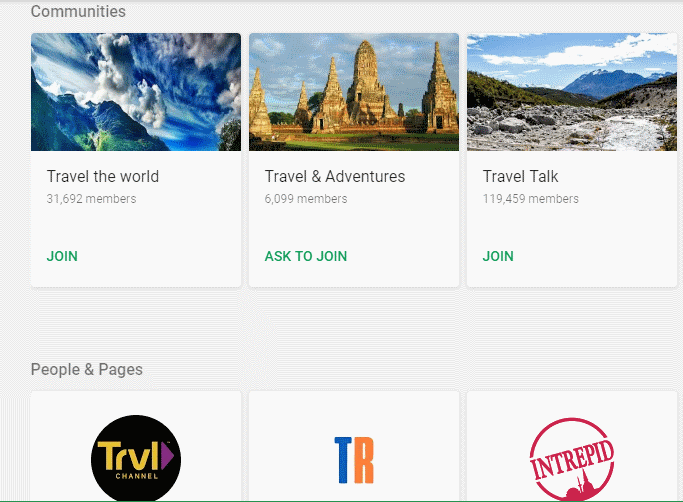A letter from hell, or a message to be completely ignored. Google+ evoked strong feelings among its users. Some people were passionate about Google’s social media service because they had found their community, and loved the platform’s remarkable functionality. Others were too busy posting dog photos and liking them in Facebook or Twitter that they couldn’t care less. Now, it is over. Google+ is no more. Here are a few tips for everyone who wants to migrate a piece of Google+ somewhere else.
You’ve received this email because you have a Google+ account or you manage a Google+ page.

I had both: a personal account and I also managed a Google+ page. In my case, the end of Google Plus wasn’t a big deal since my last post on the social media channel was in 2015. I really liked Google+ – until it was obvious it wasn’t developing as other social media services were.
Google confesses: “…due to low usage and challenges involved in maintaining a successful product that meets consumers’ expectations” as the reason for shutting down Google+ on April 2, 2019.
I want to thank Google for giving me an opportunity to find new sources of information. I have been following the ones I discovered on Google+ later on Twitter and by other means ever since. I believe there are people out there who have discovered information we provided via Google+ valuable for them, and hopefully they are following @arihak and @klaavamedia as well.
That’s the first thing everyone should do: tell people where to find you after Google+ has vanished into a polar vortex.
Save your Google+ posts and photos
If your Google+ feed or page includes posts, photos or videos you haven’t saved anywhere else, it is a good idea to save them now. Fortunately, Google provides a tool that lets you download your posts and photos. Follow this guide at Google+ support page.
Google+ community owners and moderators may feel bad, desperately bad
Closure of a social media service that is intended to help people build communities is a letter from hell to community managers and administrators. Years of work and pleasure disappears. Members disappear because everyone has an idea where to go next. Some choose Instagram, others Twitter, whereas some jump on Snapchat. Goodbye, friends.
Google is trying to soften the desperation of community owners and moderators by providing a tool that lets you:
- Download the names and links to Google+ profiles of community owners, moderators, and members.
- Download links to posts shared with the community.
- Download community metadata, including community settings, content control settings, and community categories.
This is pitiful. Links don’t have any value after Google+ has been closed. It is a lot of work – most likely too much work – to manually save the conversations of a community.
If you have used Google+ account to login to other sites, change it now
Google+ login to other sites will stop working. You have to change those logins on other sites now. It is a good privacy and security practice to use email login (not Facebook, not Twitter, not any other social media account) for signing in to web sites. The password has to be different for each service, which means you must have a way to manage those passwords. The safe and easy to way do it is to use a password manager.
If you read this after April 2, 2019
Login to Google Photos, and check if you have backed up your images there.
Key learnings from the shutdown
Before Facebook dominated one type of social media, there was MySpace and Friendster, to name a few. Before Twitter dominated public messaging, there was Jaiku and another one (whose name I can’t remember). That’s the way it goes.
Posts and messages by an individual user may be valuable if they disappear when a social media service is shut down. It is not the end of the world.
When posts and conversations of a community disappear when a social network is closed down, it is bad. Social media platforms provide excellent tools for building communities, but if you want to be absolutely sure your community isn’t closed down, the safest long-term method is to run a dedicated web site for a community.



